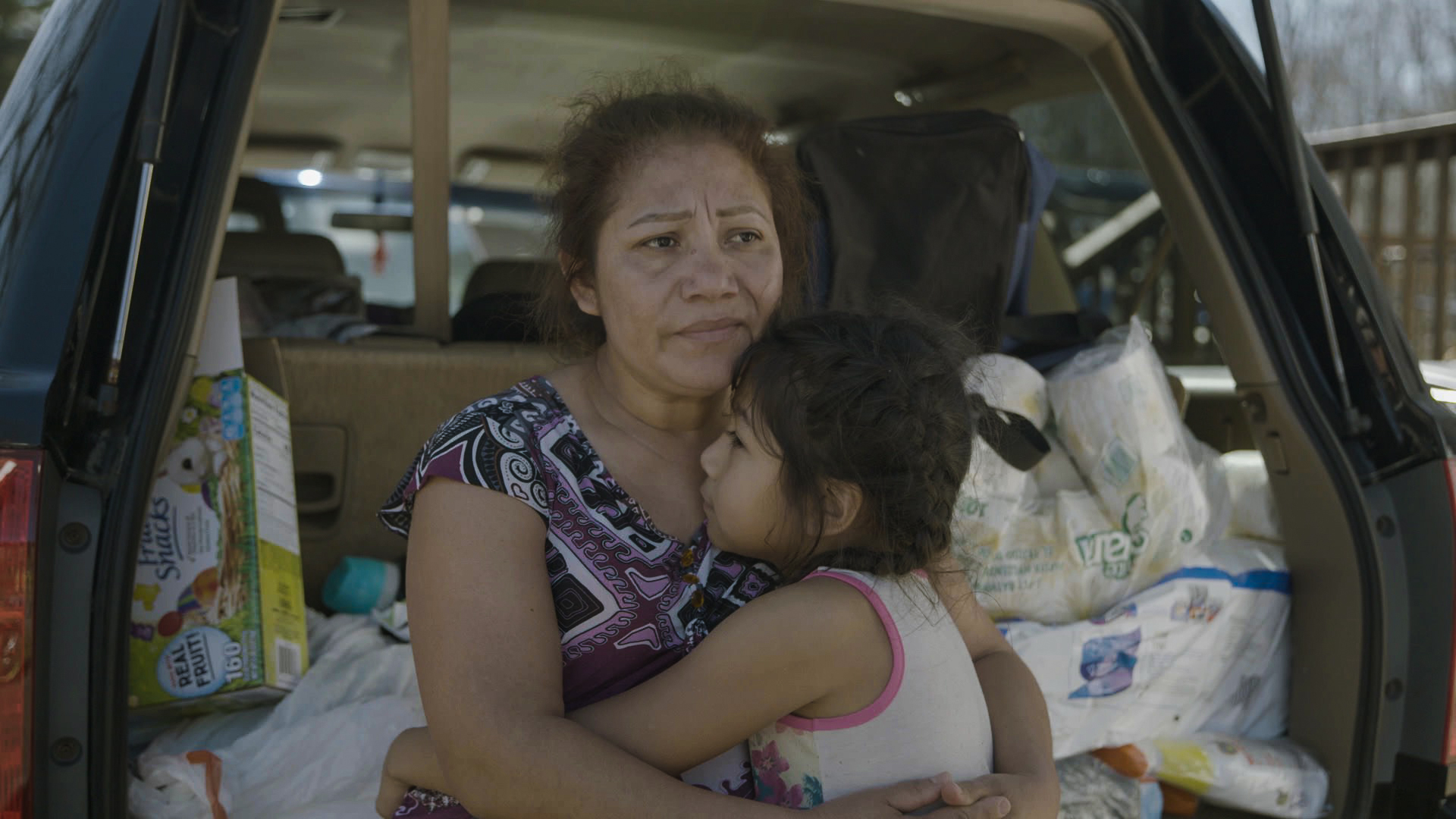
Filmmaker Catherine Gund bookended her movie Aggie with a quote from director Ava DuVernay that answers the question, what is the relationship between art and justice? "Art requires imagination, and justice does as well," she said. They're both about seeing something that's not there, and then working to make it so.
The roles of activists, artists, and journalists in creating a more just society was the topic of a conversation between Catherine Gund, Re:Store Justice Executive Director Adnan Khan, Pulitzer Center grantee Emily Kassie, and Pulitzer Center Executive Director Jon Sawyer. The event was part of the Pulitzer Center's ongoing Focus on Justice series.
DuVernay's film 13th, an account of how the Thirteenth Amendment led to mass incarceration, inspired the creation of the Art for Justice Fund. Advocate and philanthropist Agnes Gund sold a Roy Lichtenstein painting for $165 million in 2017 and used the profits to create the Fund, which aims to disrupt the carceral system by funding artists and advocates working together to reform criminal justice in the United States.
The documentary Aggie chronicles the life of Agnes Gund and, in doing so, explores the symbiotic world of art, activism, and philanthropy. At first, Catherine Gund said she had no plan to make a movie about her mother. She wanted to make a documentary about Art for Justice.
"In order to tell that story, I felt I needed to unspool what were some of the milestones, what were the things that made [Aggie] a person who would do that?" she said. "And I think that's actually a question we can all ask ourselves. I think we do need to look at what brings us to a place where we feel we can invest in the wellness and safety and health of our own families, our communities, and our whole country."
Catherine Gund and Khan met several years ago at San Quentin State Prison, where they found common ground as activists and filmmakers. Gund, an Emmy-nominated producer, director, writer, and activist, got her start documenting the AIDS crisis in collaboration with the AIDS Coalition to Unleash Power (ACT UP). Khan got his when he founded Firstwatch, a media filmmaking project produced entirely by incarcerated men, while serving a sentence at San Quentin.
Khan spoke about the importance of those affected by incarceration shaping the narrative around the prison system. The idea behind Firstwatch is to empower those living in the system to expose what goes on within it.
"People have no idea what actually happens," he said. "It happens very subtly. The punishment isn't just physical abuse. The punishment comes systemically through deprivation; depriving you of love, depriving you of family, charging you for phone calls, charging you for food, charging you for all sorts of things, using you as slave labor. And so that is kept obscure. And because it's kept obscure, that's what allows the conditions to thrive."
The obscurity of what takes place inside prisons is juxtaposed by the very public theater of crime, which is deeply entrenched in our media culture. Narratives of crime can encroach on narratives of humanity, Khan points out, when word choice turns people into "criminals," "inmates," and "felons." But journalism can also be a liberatory tool, used to humanize a population that has long been cast to the fringes of society.
"I think one thing that we can definitely substantially increase is impacted people as journalists," Khan said. If someone spent time in solitary, "let that person write about solitary. If it's about qualification, then we should invest in those qualifications."
Kassie, a journalist at The Marshall Project, said showing how systems affect people is a key role of her reporting.
"During the pandemic we saw our role as documenting what was happening in prisons, detention centers, and jails, and to the loved ones of those folks all over the country," she said. "We know there is a problem with these two gigantic systems—immigration and incarceration in America—and our job and role is to shine a light on as many broken parts of the system as possible and humanize the very real and very human people who are caught up within them."
Kassie's most recent Pulitzer Center-supported reporting project, Immigrants and the Pandemic: Two Stories of Detention and Survival, follows the lives of individuals who are undocumented, homeless, and detained, and who are fighting to survive during the coronavirus pandemic. She worked with Ben C. Solomon on the series in conjunction with PBS' Frontline and The Marshall Project.
At the end of the conversation, Gund comments on a question: "Is there any reason you would use the death sentence?" This leads to other questions. How do we define justice? Should it be punitive? How can we make it restorative? In this moment of national reckoning with the injustices embedded in our society, to move forward is to reimagine.
"There's so much potential right now amidst all this horror," Gund said. "And that's where I think the restorative justice work needs to be amplified. We need people to start thinking not in terms of, "Who would you put to death?" but in terms of, "How would you make a safe community?"
The Pulitzer Center is a grant recipient of the Art for Justice Fund, with support as part of the World of Difference Initiative, a three-year journalistic effort to examine issues related to mass incarceration. The next Focus on Justice event, on Thursday, October 29, will feature Liza Jessie Peterson, a self-described "artivist" who uses her work as an actress, playwright, and poet to advocate for incarcerated populations through art and teaching.
















